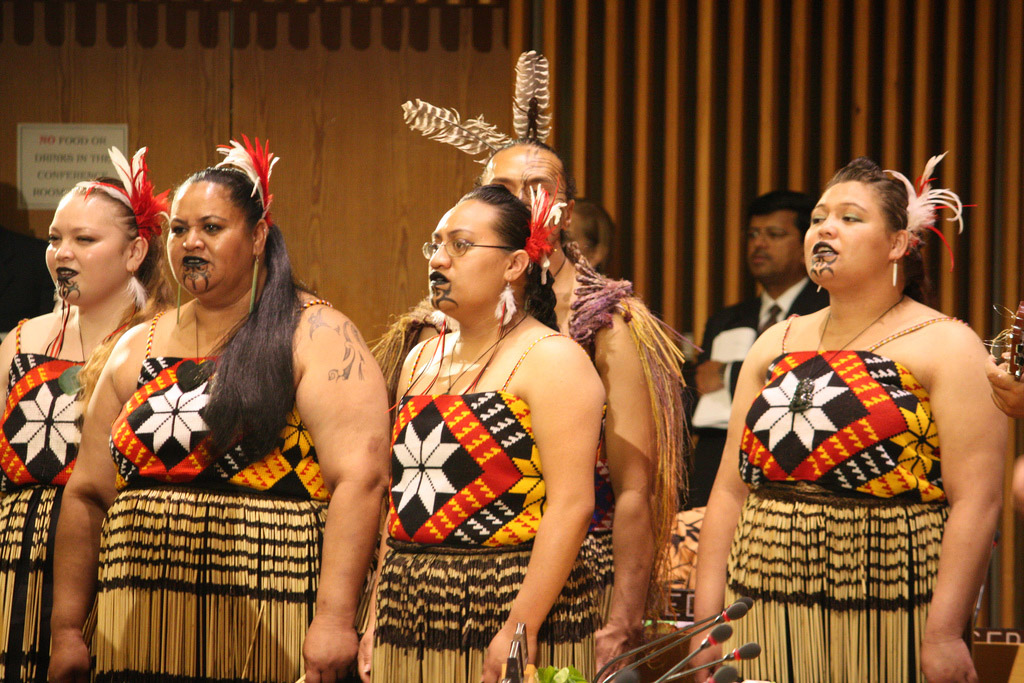November 23, 2024 14:51 (IST)

New Zealand: UN concerned by arbitrary detention of Maoris
#New Zealand, # United Nations, # deprivation of liberty, # disproportionate incarceration, # MÄori population
New York, Apr 9 (IBNS): A United Nations human rights panel has voiced concerns about issues related to the deprivation of liberty in New Zealand, including the "disproportionate incarceration rates" of the Maori population, despite legal safeguards against arbitrary detention.
Speaking in Auckland on Monday at the end of their first official visit to the country, members of the UN Working Group on Arbitrary Detention noted that, overall, legislation and policy concerning deprivation of liberty in New Zealand is well-developed and generally consistent with international human rights law and standards.
At the same time, they urged the authorities to address a number of concerns.
“If a prisoner has fully served the sentence imposed at the time of conviction, equivalent detention cannot be imposed under the label of civil preventive detention,” said expert Mads Andenas, who currently heads the Working Group. “The substantive grounds for detention must be defined with sufficient precision to avoid overly broad or arbitrary application.”
He stressed that the over-representation of MÄori also poses “a significant challenge,” noting that the members of indigenous group make up for more than 50 per cent of the prison population while they comprise some 15 per cent of the country’s population.
The group urged the authorities to address the disproportionate negative impacts on MÄori of criminal justice legislation extending sentences or reducing probation or parole, while recommending a review of the degree of inconsistencies and systemic bias against MÄori at all the different levels of the criminal justice system.
“The authorities should continue searching for creative and integrated solutions to the root causes which lead to disproportionate incarceration rates of the MÄori population in New Zealand,” he said.
During the visit, the group paid particular attention to the situation of refugees, asylum-seekers and migrants in an irregular situation. In 2012, the Government accepted 690 refugees from third countries for resettlement and made efforts to facilitate their integration in the country.
The experts noted that New Zealand is using the prison system and police stations to detain irregular migrants and asylum-seekers, although the country does not have a mandatory detention policy for asylum-seekers, refugees or migrants in an irregular situation.
“Detention of asylum-seekers, refugees and migrants in an irregular situation should normally be avoided and be a measure of last resort,” said Roberto Garretón, the other member of the group’s visiting delegation.
“Alternatives to detention should always be given preference. Humane and cost-effective mechanisms such as community release programmes can be very successful,” he underscored.
Concerning the detention of persons with mental or intellectual disabilities, the experts pointed out that that the legislative framework is not effectively implemented to ensure that arbitrary deprivation of liberty does not occur.
“Compulsory treatment orders are largely clinical decisions and it is difficult to effectively challenge such orders,” Andenas said. “Persons undergoing compulsory assessments are often unrepresented in practice, as they do not have access to legal aid.”
The experts also noted that, despite the increasing phenomenon of older persons staying in residential care, there is very little protection available to ensure that they are not arbitrarily deprived of their liberty against their will.
Lastly, the expert group expressed concern that a notable gap remains in relation to the legislative protection available to children aged 17 years, who are considered as adults for penal responsibility effects, tried as adults and, if condemned, are sent to adult prisons.
The experts urged the authorities to extend protection measures to include 17 year olds, as recommended by the UN Committee on the Rights of the Child and the UN Committee Against Torture.
The final report of the group’s 15-day mission will be presented to the UN Human Rights Council in September 2015.
(MÄoris singing and chanting at UN Headquarters in 2009. Photo: UNDP)
Support Our Journalism
We cannot do without you.. your contribution supports unbiased journalism
IBNS is not driven by any ism- not wokeism, not racism, not skewed secularism, not hyper right-wing or left liberal ideals, nor by any hardline religious beliefs or hyper nationalism. We want to serve you good old objective news, as they are. We do not judge or preach. We let people decide for themselves. We only try to present factual and well-sourced news.
Support objective journalism for a small contribution.
Latest Headlines
'Third World War has begun:' Ex-Ukraine military commander-in-chief Valery Zaluzhny Sat, Nov 23 2024
London's Gatwick Airport: South Terminal evacuated after discovery of suspected prohibited item in luggage Fri, Nov 22 2024
Laos: Six foreign tourists die due to suspected methanol poisoning Fri, Nov 22 2024
USA: Indian-origin student Aryan Reddy dies after accidentally firing himself with a gun Fri, Nov 22 2024
Donald Trump picks 'smart and tough' Pam Bondi as new US Attorney General after Matt Gaetz withdraws Fri, Nov 22 2024
Pakistan: 42 Shiites die after gunmen open fire on vehicle in Kurram Fri, Nov 22 2024
Donald Trump names Pam Bondi as attorney general Fri, Nov 22 2024







